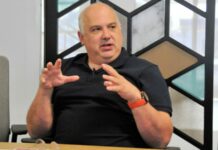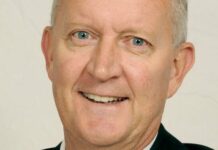[miningmx.com] — METMAR MAY HAVE LISTED only 18 months ago, through the Heritage Collection shell, but its senior executives mostly have close on 30 years’ experience.
That’s important in commodity trading, where – more than most – reputation and credibility are paramount.
Before listing, the business was owned jointly and equally by Piet Boshoff, David Ellwood (current CEO), Glen Forsdyke and Greg Lotis, whose experience largely goes back to the Eighties when they ran the Jo’burg office of Asoma, a US metals trader that, among other things, sold steel for Highveld and Iscor.
Asoma ran into problems and sold the Jo’burg operation to Macsteel. After persuading Macsteel’s Eric Samson that non-ferrous metals trading was not an area of Macsteel’s expertise, they arranged an amicable buyout and set up Metmar in 1985.
They had long-term contracts on behalf of Macsteel that had to be run down, and Ellwood says that helped establish the credibility of the new business.
Metmar currently has agents and associates in more than 30 countries. It prides itself on being more than just a selling agent: its stated vision is to provide total financing and logistical solutions for suppliers and consumers of resources-based commodities.
On top of that it’s started to invest minority strategic equity stakes in production ventures. Ellwood says that in such cases Metmar acts as a marketing agent and has to accept a lower margin, but believes that will be more than compensated for in subsequent capital appreciation.
One such investment that’s already paying off is 10% of Kalahari Resources (Pty), which owns 80% of the Kalagadi manganese project in the Kuruman/Hotazel area (the IDC owns the other 20%, and the other half of the Pty company is owned by empowerment groups, mainly black women).
ArcelorMittal has just bought a 50% stake in Kalagadi for US$315m. The plan is to develop a mine and build a 320 000t/year ferromanganese alloy plant at Coega, which will meet at least half ArcelorMittal’s needs.
Ellwood reckons the final cost of that project could be a good R4,5bn and even though Metmar’s interest will be heavily diluted, it will show a great return on a negligible investment. He sees Kalagadi as the first real break in the Assmang/Samancor duopoly of the manganese market and suspects that with the liberation of unused mineral rights there will be more to come.
Metmar also holds an effective 11,81% in Mogale Alloys, a manganese and stainless steel alloy produ-cer near Mogale (Krugersdorp), at a cost of R50,8m, which is prospering and seeking SA Reserve Bank approval to take a 7% equity stake in Kivu Resources, which owns tantalum and tungsten deposits in Rwanda and in eastern Democratic Republic of Congo.
Commodities trading is generally regarded as a risky business, but Ellwood stresses that Metmar’s business is the elimination of risk. When Metmar is approached to sell a consignment it has a period to accept or reject. It uses that window to try and arrange a profitable sale and won’t accept without one.
Ellwood refuses to take a bet on commodity prices, saying they’re so volatile and unpredictable that one wrong guess can wipe out a company in an afternoon.
Markets such as the London Metals Exchange, formed for the convenience of producers and consumers, have been turned into speculators’ playgrounds, which he’d rather not enter.
Ellwood says that by arranging financial packages Metmar can encourage the growth of small mining businesses and also give confidence to contract miners.
Being a listed company, he says, adds to its credibility – even if it survived for 20 years without a listing.
While Metmar is trying to broaden its geographical base, southern Africa still represents 70% to 80% of the business. He feels a South African company has an edge not only in Africa, where it knows the conditions better than anyone, but internationally, thanks to the government’s foreign policy of being friendly with everyone.
Like the rest of us, Ellwood says business would be easier if forex controls were abolished, though he welcomes the relaxations there have been.
Interim results for the six months to August (published earlier this month) showed a net profit of R32,9m on revenue of R1,09bn.
It’s a low-margin business but there was good growth from revenue of R728m and a net profit of R22,6m the year before. HEPS were up from 12,9c to 18,2c, making 30,6c for the past 12 months.
The listing was accompanied by a 60 times subscribed placing at 107c, though the four principals still own 74% of the equity. That may have inhibited trading volumes on the JSE but has no doubt contributed to a sturdy share price performance.
With only modest interruptions – the biggest, not surprisingly, being between mid-June and mid-September this year – it’s advanced to the current all-time high of 530c. That’s a fair earnings multiple of 17,3, though it should be noted that no dividends are paid.
The four principals don’t need them, as they each take out almost R2,5m/year. Still, that’s not exorbitant, by listed company standards, for a firm with a market cap of around R980m. And if the share extends its historic performance, minorities won’t have anything to complain about either.











